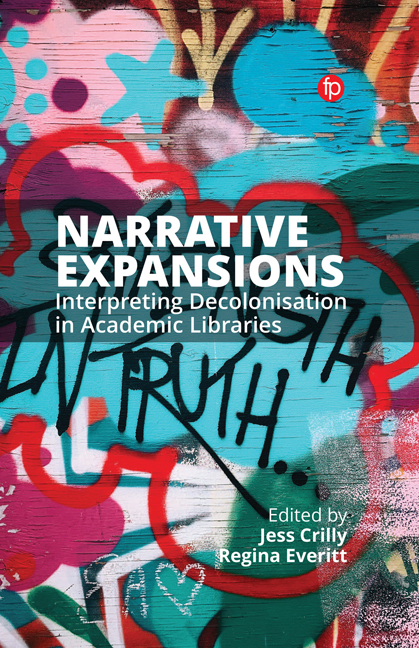11 - Towards Decolonising the British Library: A Staff-Led Perspective
Published online by Cambridge University Press: 28 January 2022
Summary
Introduction
In September 2020 the British Library added captions beneath the previously undescribed busts of four major figures proudly displayed at the main entrance of the Library's St Pancras building in London. We begin this chapter by reproducing two of those captions in their entirety, as they capture the essence of efforts by many within the Library to show how the institution's colonial entanglements resonate in the experience of staff and visitors every day.
Sir Joseph Banks (1743–1820)
Joseph Banks was a prominent botanist, who served as President of the Royal Society, and advised on the development of the Royal Botanic Gardens at Kew. He was a key figure in the British Empire's expansion in, and exploitation of, the Pacific. Banks self-funded his journey to join James Cook's first voyage to the Pacific in 1768. As well as collecting thousands of plant and animal specimens from across the globe, Banks and his party described and documented ‘other’ peoples they encountered.
In a series of violent clashes during Cook's voyage around Aotearoa (New Zealand), Banks was involved in the murder of at least one Māori warrior and was also party to the kidnapping of three Māori youths in which four other Māori were shot and killed. A decade after returning to England, Banks advocated for the establishment of a British prison colony in ‘New South Wales’, and later of the British colonial settlement of Australia, which has resulted in the ongoing displacement and oppression of the continent's indigenous peoples. After his death, Banks’ collections were left to the British Museum, later passing in part to the British Library.
Joseph Banks was a key player in the opening up of the Pacific and Australia for exploitation and enforced colonisation. Less publicised is his direct involvement in the murder of several Māori during his voyage with Cook on the Endeavour. My Ngati Kahungunu ancestors were among those killed – a trauma we still feel heavily today. For the indigenous peoples of the Pacific, Banks is a symbol for violence and oppression under the guise of exploration and science. Scott Ratima Nolan, Conservation Support Assistant, British Library
- Type
- Chapter
- Information
- Narrative ExpansionsInterpreting Decolonisation in Academic Libraries, pp. 153 - 172Publisher: FacetPrint publication year: 2021
- 1
- Cited by



